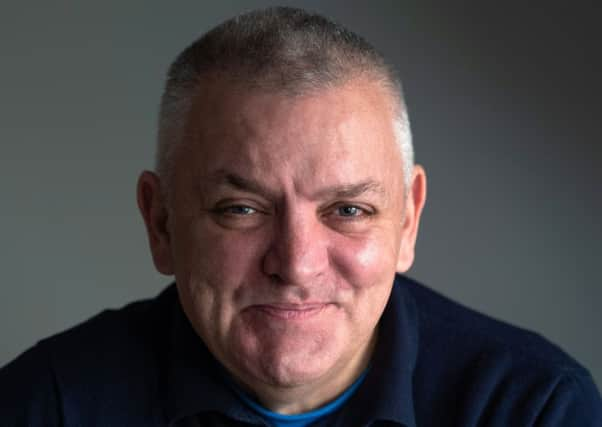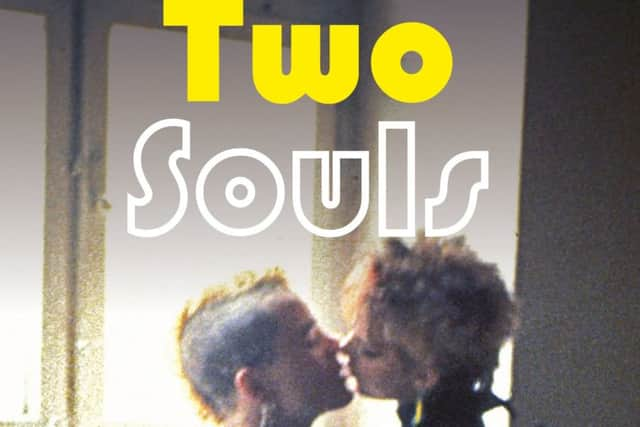Teenage kicks turn dark in gripping tale


It opens with a quote from Goethe’s Faust, that seeker after knowledge who makes a pact with the Devil; “Two souls, alas, are dwelling in my breast,/ And one is striving to forsake its brother.” Two souls are warring for dominion in the heart of man, indeed, good and bad, dark and light, that ancient struggle, and the novel itself poses a pertinent question: does one give in to the dictates of love, pacifism and virtue or of hatred and violence, the bullet and the bomb?
The Ireland correspondent for the Guardian and the Observer, who has written numerous critically acclaimed books about various paramilitary organisations, and hails from the nationalist Markets area of Belfast, describes the novel, his second, as an “exorcism of demons” and it fairly bristles with anarchic, punk energy, the discriptions whip-sharp and almost Hunter S Thompson-style gonzo-clever, the trio of central characters, Robbie, Padre Pio and Rex Mundi, setting out to the 1979 Cup Final at Windsor Park in support of Cliftonville FC, loaded with liquor and dope, high spirits and teenage defiance.
Advertisement
Hide AdAdvertisement
Hide AdTheir escapades are interspersed with prison communications smuggled from inside to the Maze to the paramilitary-policed streets of the conflict-torn city, and the novel charts how Robbie and his cohorts are incrementally led toward the ‘dark side’ of violent activity.


Local poet Gerald Dawe has described the work as “Withnail and I meets One Flew Over the Cuckoo’s Nest with a manic dose of Clockwork Orange”, and accordingly the novel is often shocking in content and language, which McDonald feels is a measure of its commitment to reflecting the extremities of experience authentically.
“I try to write as realistically possible,” says Henry. “This is the story of how three teenage punks from Belfast end up being pulled into lives of terrorism. There’s also a love affair that goes wrong too.
“It’s set in three time frames, 1978, 79 and 97. It starts with the summer of love and the central character Robbie is infatuated with the enigmatic Sabine, a fellow punk, who hangs out in The Harp and the Pound; she introduces him to the music of David Bowie.
Advertisement
Hide AdAdvertisement
Hide Ad“The action first centres on the Irish Cup Final in 1979. It was a seminal moment in my growing up. And some of the characters are based on people I was hanging around at the time.
“There’s a divided city depicted here but really the book is about a division in Robbie himself, the double life he’s leading - his punk side is the progressive, bohemian side, it’s the side that’s moving away from tribalism, but he’s pulled in the opposite direction by other peers, to the attractions of the hooligan scene and then ultimately republican terrorism.”
Stylistically McDonald is inspired by the work of Martin Amis and Iving Welsh, David Park and Bernard McLaverty. “All are very adept at writing about the frailties of human relationships. I wanted to capture the local vernacular here but also at times be tender and poetic, but I’m not very conscious of other writers impacting on my work.
“Some of this was disturbing to write and I drew on a book I wrote a while back, INLA - Deadly Divisions with Jack Holland.
Advertisement
Hide AdAdvertisement
Hide Ad“The story culminates with the beginning of the IRA ceasefire. There’s realisation at the end of the story, if not hope. The main character realises he’s been had.”
Henry expains that the novel had been brewing in his mind for 20 years, an ache that wouldn’t go away, a series of themes and ideas that simply had to be explored. “This is a book I needed to write and it felt like a kind of exorcism. If there’s a message, and I’m not being didactic anywhere here because I didn’t think that’s good for art - but there’s stuff here about the innocence of youth, how that’s corrupted, the redemptive power of music, and also, most importantly, a strong sense of the futility of the violence that constituted the Troubles. I don’t believe things are predetermined. Circumstances may set you on a certain path but ultimately we have choices to make. Two roads diverge in the yellow wood and you have to choose which path you go down. The failure of love, the frustrations of work, general disillusionment with the world can push people towards the dark side of things and it does so in Robbie’s case.” Unfortunately for Northern Ireland, too many others also chose paramiltarism and found out too late the high cost of such dark arts.
Two Souls by Henry McDonald is published by Merrion Press.